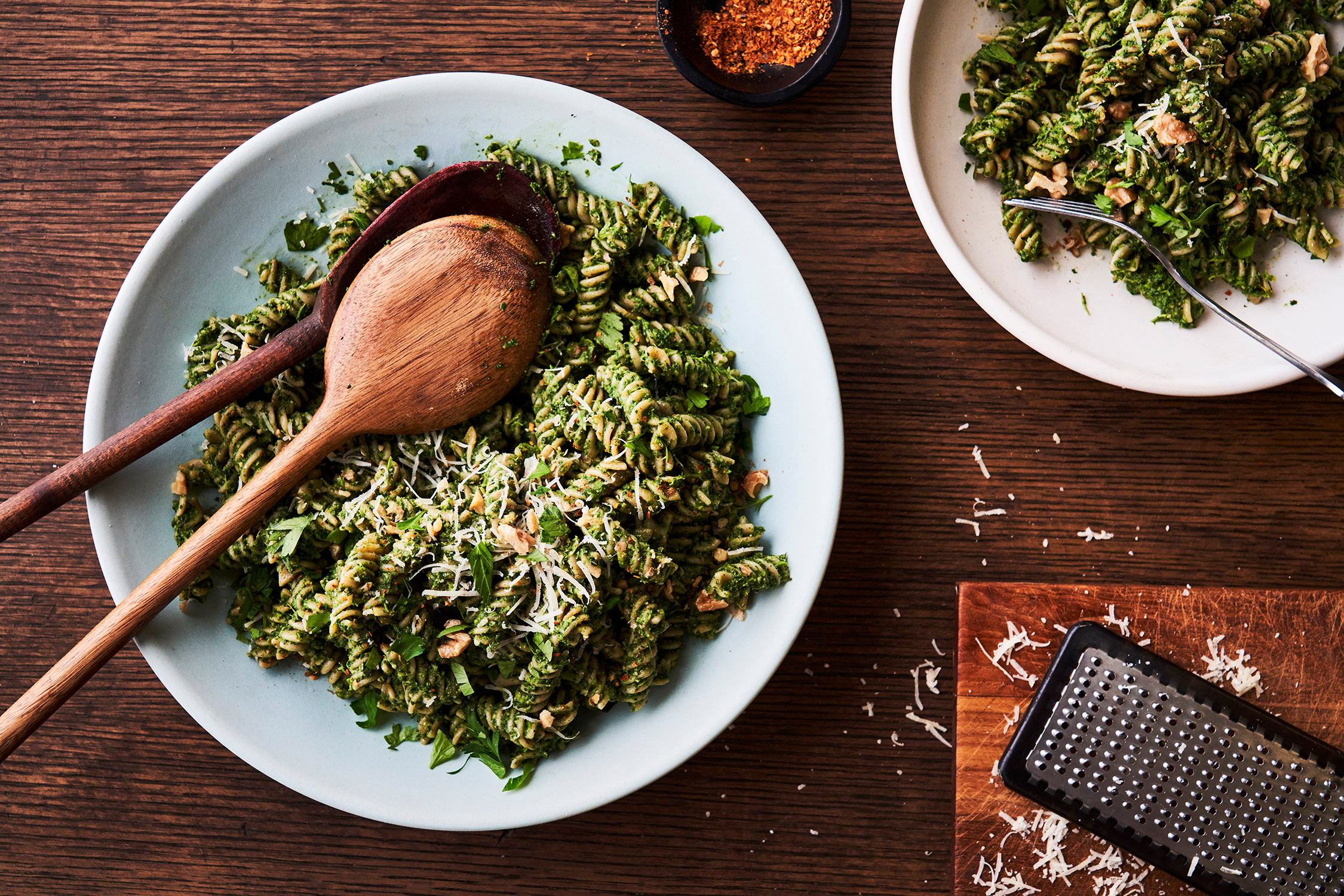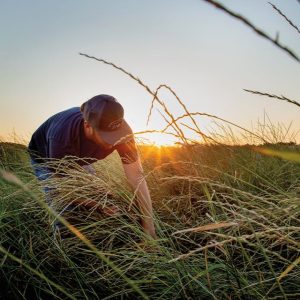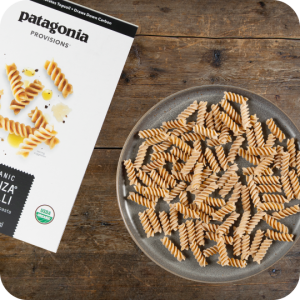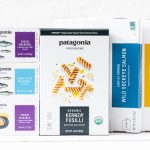A Planet-Friendly New Pasta from Patagonia Provisions
By Grace Singleton, Deli Managing Partner

We get a lot of food delivered to our receiving area, and when the cases of Patagonia Provisions’ Kernza Fusilli arrived, to say that I was excited is quite an understatement. I think that product made it to the floor for sale before the truck pulled away from the Deli! It’s a product that could potentially revolutionize our agricultural system and it’s a great-tasting pasta that I want everyone else to know about. Let me back up for a minute.

For over 15 years, I’ve been reading about the research and development of perennial crops by Wes Jackson and his colleagues at the Land Institute in Salina, Kansas. Founded by Jackson in 1976, the Land Institute focuses on science-based research to develop sustainable alternatives to destructive agricultural practices. One of their main goals is developing perennial grain crops like Kernza® that are more drought and pest resistant and reduce nitrogen runoff, soil erosion, and loss of diversity. This is revolutionary work! I continued to follow the story as it developed—hoping that it could become a viable source of wheat someday and help us find new ways to farm.
What I didn’t realize was that over 10 years ago, Patagonia Provisions, the offshoot of Patagonia that sells food and beverages, had committed to helping develop Kernza. Since Kernza is a perennial plant, it sprouts from the same roots year after year; unlike almost every other commercially-produced grain, which are annuals that require replanting. In 2017, there was a beer produced from Kernza, and then a cereal a couple of years later, but the release of Patagonia Provisions’ pasta is the first time that a food product has been packaged and sold at this scale using the Kernza grain.
I received samples of their Kernza Fusilli pasta from my friend Danny Watts who works for Patagonia Provisions. With any new product we consider carrying, the first step is always to taste it. I went to our kitchen and got a pot of salted water to put on the range. As I was waiting for the water to boil, I took a closer look at the packaging. When I turned it over, I saw the iconic photo of the long, lush root system of the Kernza perennial wheat compared to the short, scrawny root system of a regular wheat plant. (For some reason, when Danny first mentioned the pasta to me, I hadn’t realized it was made from Kernza—now I was even more excited to try it!) The differences in the size and bulk of the Kernza wheat roots when compared to a traditional wheat crop that is replanted annually are shocking, especially if you imagine the differences at life-sized scale. The Kernza roots are up to 3 meters long! Each growing season, conventional farming methods require that fields are tilled, sprayed, fertilized, and reseeded. This practice results in billions of tons of soil erosion every year. The Kernza perennial wheat is designed to keep the benefits of perennial growth in our natural ecosystem. In the words of Wes Jackson,
[A] prairie—a prime example of a self-sustaining system—doesn’t have soil erosion, it’s not fossil-fuel dependent, you have species and chemical diversity. If you look around you’ll see that essentially all of nature’s ecosystems are perennial polycultures; that’s nature’s instruction book.
In perennial polycultures, the plants may fertilize one another, physically support one another, ward off pests and diseases together, resist drought and flood, and survive even when one member suffers.

Excited as I was about the pasta cooking in the kitchen, I also started to get a little nervous. Over the years, I’ve had the chance to taste many products that are focused on being better for the environment or better for our health, among other things, but the true test is the flavor—lots of pretty packaging and stories don’t always give you great taste. Chef Bill Wallo was hanging out with me as I started draining the pasta, and we both remarked on how good the pasta smelled! We each tasted a piece straight-up and it was delicious! Nutty and complex in flavor, more like a whole wheat pasta than a traditional wheat pasta. (I found the flavor similar to the heirloom grain Turanici Sedani pasta we get from Mancini.) It also had a great texture—firm and toothsome, a very good thickness, a great shape to hold sauce, and it held together well—there weren’t broken pieces. I could tell by the texture of the exterior of the pasta that it was made with bronze dies; they’d done their research and partnered with good producers. I then added a little olive oil and sea salt, shared some with our specialty foods department, and started thinking about when we could get it on our shelves.
And now it’s here! For a quick, delicious, and easy-to-prepare meal, that will also make you feel great about your impact on the planet, cook up some Kernza Fusilli, drizzle it with Colonna Lemon Olive Oil, add some freshly chopped chives, and top it with some of Patagonia Provisions’ Smoked Mackerel. Just open the tin and break up the fish into pieces. I also like to drizzle the liquid from the tin over the top for some extra flavor. You can add some sautéed cherry tomatoes and onions, or any other vegetables you prefer, to make it more like a primavera-style pasta. From start to finish you can have a delicious meal in about 20 minutes.
This Kernza pasta is definitely a big win in the flavor department and it’s a big win for our planet, too. I can’t wait to hear what you think of it.



